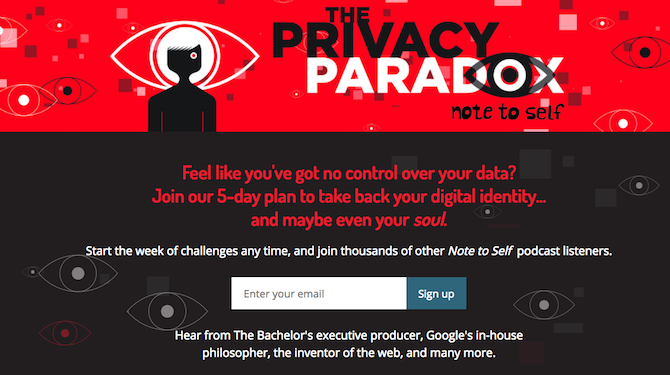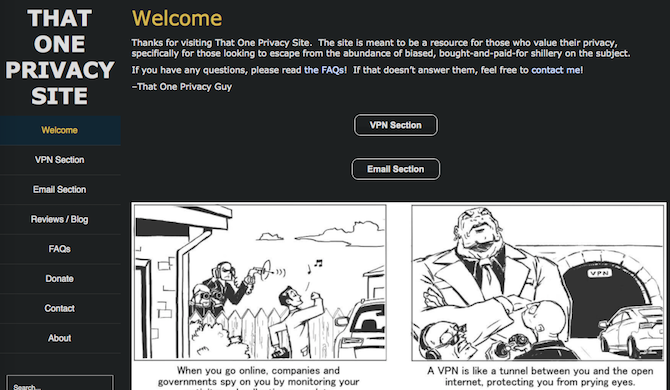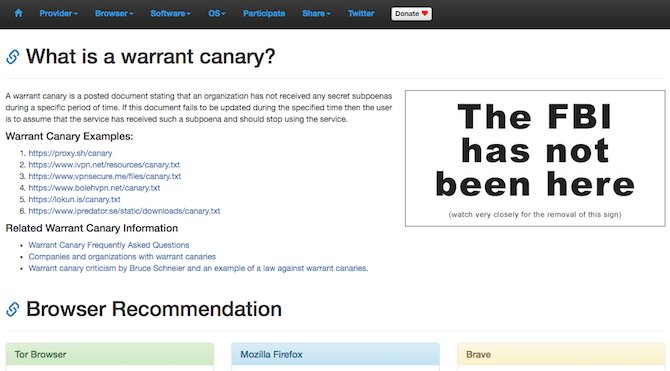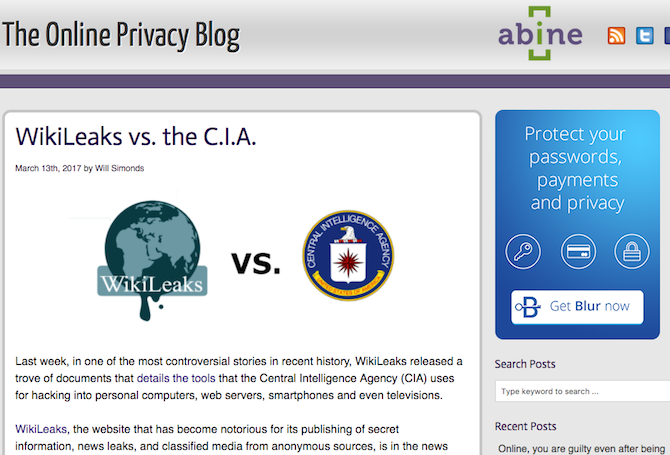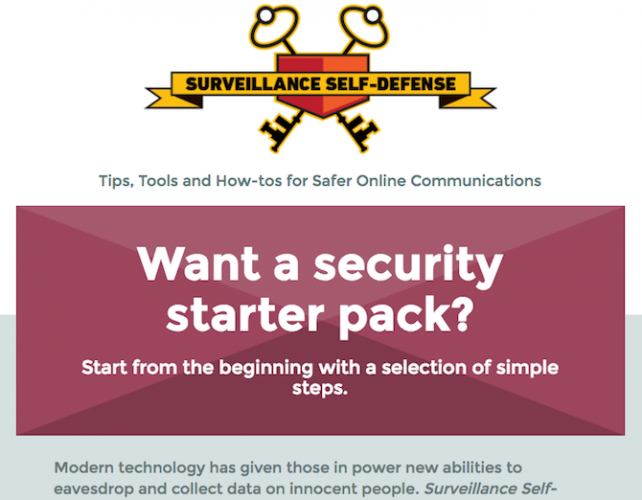It's the most common argument against privacy: "If you've got nothing to hide, you've got nothing to fear." It's also the silliest argument against privacy.
Privacy expert and author Daniel Solove has torn down this fallacy in his paper on the subject. But Solove's essay is a complex take on a nuanced subject. Instead, the simple rhetoric of the "nothing to hide" argument is easier to repeat.
But no matter how little you have to hide, the implications of online privacy breaches are major. These few resources explain the pitfalls clearly and concisely.
1. The Privacy Paradox (Web, Podcast): 5-Day Plan and a Quick Quiz
In early 2017, New York's public radio station WNYC hosted a special on understanding privacy. Note To Self host Manoush Zomorodi talked to experts from various fields. The entire program was turned into its own special website, The Privacy Paradox.
The site features a five-day challenge, set as the five episodes of the show. Each episode tells you how your privacy is being exploited by everyday technology, from phones to Google. And then there are tasks to reclaim your lost privacy. Zomorodi and his team have even converted it into a neat cheat sheet of privacy tips.
The Privacy Paradox also hosts a small quiz to figure out your "privacy personality", which is another way of saying how privacy-aware you are. It's worth taking the few minutes, just so you have a realistic idea of where you stand.
2. That One Privacy Site (Web): Understanding VPN and Email
Privacy advocates often concentrate on two aspects of how we use the internet: email and VPNs (virtual private networks). Given what happened in the last U.S. Presidential election, everyone is well aware of the risks of email data leaking.
That One Privacy Site is a third-party, unbiased review of everything related to email and VPN. You'll find simple and detailed comparisons of all major VPNs and email services, and guides on how to choose the right one for you.
The site has been deemed reliable by several experts on security, and enjoys the support of Reddit's /r/Privacy community too. Which is all a way of saying, this is trustworthy stuff.
3. PrivacyTools.io (Web): Privacy Ratings for Everything
Have you ever really thought about the number of points where you give away information about yourself? The fingerprint scanner on your phone, your web browser, heck, your internet service provider—these are all nodes collecting data about you. You are being watched at all times. But how much?
PrivacyTools.io is a one-stop guide to how much different parts of the internet know about you, and how to stop them. The site has reviews and recommendations for the best tools to use so that you get an uncompromised web experience while protecting yourself. This includes browsers, email clients, messengers, operating systems, password managers, and much more.
It's common sense to use the best privacy-protecting apps, but it's difficult to weed out the ones that promise a lot and deliver nothing. You don't need to do that yourself if you follow the recommendations at PrivacyTools.io.
4. The Online Privacy Blog (Web): The Things You Need To Know
Privacy threats are ever-changing. It almost seems like a new one comes up every week. The Online Privacy Blog is a good place to stay abreast of new privacy issues, and how to thwart them.
The blog serves guides to enhance your privacy, as well as summarizes news events that deal with your data's protection. Author Will Simmonds has an easy-to-understand writing style that never gets too technical, which is ideal for those new to privacy protection.
Fair warning, the site is run by Abine, which makes password manager app Blur. You'll see a few posts about that, so take them with a pinch of salt. Make sure you consider LastPass or alternative password managers.
5. Surveillance Self-Defense (Web): The EFF's Privacy Pack
The Electronic Frontier Foundation (EFF) is a non-profit organization that protects your online rights, data, and privacy. To help in your privacy quest, the EFF has created a mini-site of guides and packs.
If you're a beginner to data protection, try the security starter pack. Or browse through other packs to find one that fits your profession (like journalist or security veteran). EFF has divided the kit into three parts:
- Overviews explains the basics of digital surveillance and how to fight it.
- Tutorials has step-by-step instructions to install sorts of tools.
- Briefings has detailed guides for activities like attending a protest, crossing the U.S. border, or using Facebook Groups.
The EFF package has everything you will need, irrespective of how experienced you are with online privacy.
Do You Have Anything to Hide?
Journalist Glenn Greenwald, who exposed the Snowden leaks, gave a scintillating TED Talk on privacy. He explained why it matters, how it affects you, and what you can do about it. It's worth a watch:
Do you still believe in the "if you have nothing to hide, you have nothing to fear" argument? Why or why not?


